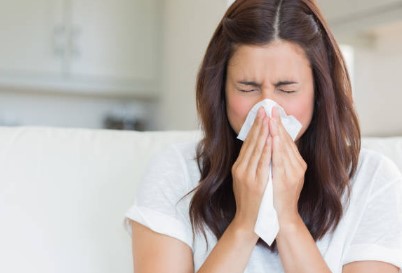Antihistamines are a class of medications that are commonly used to treat allergic reactions. They work by blocking the effects of histamine, a chemical produced by the body in response to allergens. Histamine is responsible for triggering symptoms such as itching, sneezing, runny nose, watery eyes, and swelling.
Antihistamines can be divided into two main categories: first-generation antihistamines and second-generation antihistamines.
First-generation antihistamines
These antihistamines have been available for a longer time and are known to cause drowsiness and sedation. They can provide effective relief for allergies but are generally not recommended for daytime use due to their sedating effects. Examples of first-generation antihistamines include diphenhydramine (Benadryl), chlorpheniramine (Chlor-Trimeton), and promethazine (Phenergan).
Second-generation antihistamines
These antihistamines are newer medications that are less likely to cause drowsiness and sedation compared to first-generation antihistamines. They are preferred for daytime use and have a longer duration of action. Examples of second-generation antihistamines include loratadine (Claritin), cetirizine (Zyrtec), fexofenadine (Allegra), and levocetirizine (Xyzal).
Antihistamines are available in various forms, including tablets, capsules, chewable tablets, liquids, and nasal sprays. They are commonly used to treat allergic conditions such as hay fever (allergic rhinitis), hives (urticaria), allergic conjunctivitis, and allergic skin reactions.
It’s important to note that antihistamines may have different formulations, dosages, and potential side effects. It’s recommended to consult with a healthcare professional or pharmacist to determine the most suitable antihistamine for your specific needs and to ensure it is safe for you based on your medical history and any other medications you may be taking.
Anti Histamines for Runny Nose
Antihistamines are commonly used to relieve symptoms of a runny nose caused by allergies or allergic reactions. They work by blocking the effects of histamine, a substance released by the body during an allergic response. Here are a few examples of antihistamines that can help with a runny nose:
Loratadine (Claritin)
Loratadine is a non-drowsy antihistamine that can provide relief from symptoms such as a runny nose, sneezing, and itching. It is available in various formulations, including tablets, chewable tablets, and syrup.
Cetirizine (Zyrtec)
Cetirizine is another non-drowsy antihistamine that can alleviate symptoms of allergic rhinitis, including a runny nose, itching, and sneezing. It is available in tablet or syrup form.
Fexofenadine (Allegra)
Fexofenadine is a non-drowsy antihistamine that can be effective in reducing symptoms of allergic rhinitis, including a runny nose, itchy and watery eyes, and sneezing. It is available in tablet or capsule form.
Diphenhydramine (Benadryl)
Diphenhydramine is a sedating antihistamine that can help relieve symptoms of a runny nose due to allergies. It may cause drowsiness, so it is often used for nighttime relief. Diphenhydramine is available in various forms, including tablets, capsules, and liquid.
It’s important to note that antihistamines may have different formulations and dosages depending on the brand and country. It’s best to consult with a healthcare professional or pharmacist to determine the most appropriate antihistamine for your specific needs and to ensure it is suitable for you based on your medical history and any other medications you may be taking. They can provide guidance on the correct dosage and frequency of use.
Is Antihistamines dangerous with too much use
When used as directed and in recommended doses, antihistamines are generally safe and well-tolerated. However, excessive use or misuse of antihistamines can have potential risks and side effects. It’s important to follow the recommended dosage instructions and guidelines provided by the healthcare professional or indicated on the packaging.
Here are some considerations regarding the potential dangers of excessive antihistamine use:
Sedation
Some antihistamines, particularly first-generation ones, can cause drowsiness and sedation. Taking higher-than-recommended doses or combining multiple antihistamines can increase the sedating effects, impairing alertness, coordination, and driving abilities.
Dry mouth and other side effects
Antihistamines can cause side effects such as dry mouth, dizziness, blurred vision, constipation, and urinary retention. Taking excessive doses may intensify these side effects and lead to discomfort.
Overdose
Taking excessive amounts of antihistamines can lead to an overdose, which can be dangerous. Symptoms of an antihistamine overdose may include extreme drowsiness, confusion, rapid heartbeat, hallucinations, seizures, and difficulty breathing. If an overdose is suspected, immediate medical attention should be sought.
Drug interactions
Antihistamines may interact with other medications, such as sedatives, tranquilizers, and certain antidepressants, intensifying their effects or increasing the risk of side effects. It’s important to inform your healthcare professional about all the medications you are taking to avoid potential drug interactions.
Specific populations: Certain populations, such as young children, older adults, and individuals with certain medical conditions, may be more susceptible to the side effects of antihistamines. It’s essential to consult with a healthcare professional or pharmacist before using antihistamines in these populations.
To ensure the safe use of antihistamines, it’s advisable to:
- Read and follow the instructions provided with the medication.
- Stick to the recommended dosage for your age and weight.
- Avoid combining different antihistamines without medical advice.
- Be cautious when driving or operating machinery if the antihistamine causes drowsiness.
- Seek medical advice if you experience severe side effects or if symptoms worsen or persist.
Remember, it’s always best to consult with a healthcare professional or pharmacist for guidance on proper usage, dosage, and any concerns related to antihistamine use.


